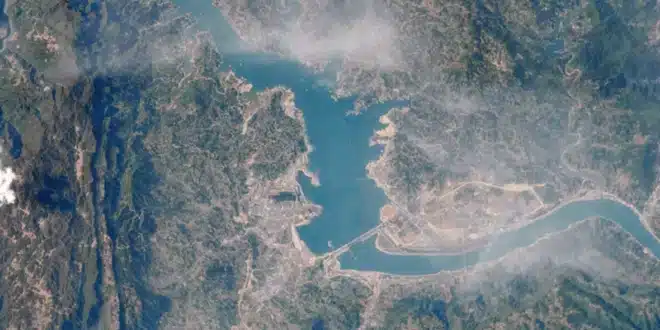The “Three Gorges Dam,” the world’s largest hydroelectric dam, located in China, has had such a massive impact that it has even affected Earth’s rotation. Situated in Hubei province, the dam spans the Yangtze River, the longest river in Eurasia, and harnesses the flow of water from three nearby gorges—Qutangxia, Wuxia, and Xilingxia—to generate electricity by spinning its turbines.
The dam’s Earth-shifting potential was first recognized in 2005 when NASA observed how the catastrophic Indian Ocean earthquake and tsunami had influenced the Earth’s spin. This finding illustrated how even small changes in the planet’s mass distribution can slightly alter its moment of inertia.
Just as tectonic plate movements during earthquakes can impact the Earth’s rotation, large shifts in water mass can have a similar effect. NASA scientists noted this phenomenon after the 2004 Indian Ocean earthquake, which altered the Earth’s mass distribution and shortened the length of a day by 2.68 microseconds.
According to scientists, the Three Gorges Dam is also affecting Earth’s spin due to the enormous amount of water it holds—approximately 40 cubic kilometers, or 10 trillion gallons. Dr. Benjamin Fong Chao, a geophysicist at NASA’s Goddard Space Flight Center, explained that this mass shift can increase the length of a day by 0.06 microseconds and shift the Earth’s pole position by around 2 centimeters (0.8 inches).
Though this impact is minor compared to the effects of large earthquakes, it highlights the broader influence human infrastructure can have on planetary dynamics. Other human activities, such as climate change, are also affecting the Earth’s rotation. Rising global temperatures and melting polar ice caps have shifted more mass toward the equator, slowing the planet’s spin and gradually lengthening the days.


